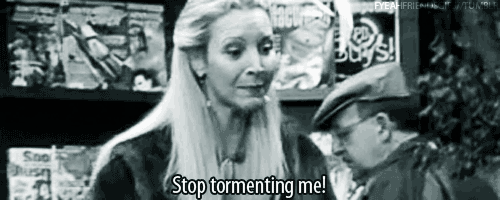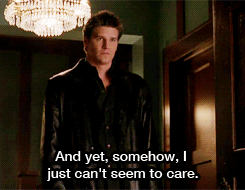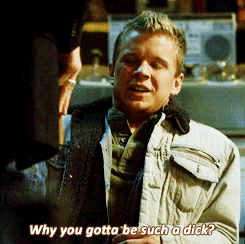Ah, Frank Churchill. If I were forced to voice an area of dissatisfaction with Clueless (which, why would I ever be?), it would be that some of the characters in Emma who delight me with their dreadfulness are not adequately represented in Clueless. So much of Emma’s character in the books is informed by her trying to avoid being bored. She’s not as attentive to the Bates ladies as she ought to be because of how DAMN BORING they are:
“Thank you. You are very kind. Yes, next week. Every body is so surprized; and every body says the same obliging things. I am sure she will be as happy to see her friends at Highbury, as they can be to see her. Yes, Friday or Saturday; she cannot say which, because Colonel Campbell will be wanting the carriage himself one of those days. So very good of them to send her the whole way! But they always do, you know. Oh yes, Friday or Saturday next. That is what she writes about. That is the reason of her writing out of rule, as we call it; for, in the common course, we should not have heard from her before next Tuesday or Wednesday.”
A few paragraphs of this and you feel like

And that’s just from reading the conversation! Imagine sitting through it! I really feel for Emma when she visits the Bateses, or when Jane Fairfax visits her. Emma starts out with the best of intentions towards Jane Fairfax, but Jane is maddening to try to have a conversation with. Emma’s all “GUESS WHAT SURPRISE MARRIAGE IN TOWN,” and Jane won’t enter into it at all.

As for Frank Churchill, I’m a hundred percent with Mr. Knightley on this one: Like most of the antic young men in Jane Austen’s books, this kid’s a dick. I had forgotten how mean he is about Jane Fairfax — I can’t imagine anything meaner than beginning his conversation about her to Emma by saying she’s sallow and sick-looking. If I were Jane Fairfax, I’d have kicked his ass to the curb. A guy who says this about the woman he secretly loves is a worthless guy.
“Thank you for rousing me,” he replied. “I believe I have been very rude; but really Miss Fairfax has done her hair in so odd a way—so very odd a way—that I cannot keep my eyes from her. I never saw any thing so outree!—Those curls!—This must be a fancy of her own.”
Or this:
“Perhaps it is as well [the party ended],” said Frank Churchill, as he attended Emma to her carriage. “I must have asked Miss Fairfax, and her languid dancing would not have agreed with me, after your’s.

By contrast, Mr. Knightley, who I am liking so much better on this reread than I ever have before, displays his awesomeness by ordering a carriage for Jane Fairfax and the ladies Bates, and also by saying, “Surprizes are foolish things. The pleasure is not enhanced, and the inconvenience is often considerable.”

I’ll have more to say about Mrs. Elton in the third section of this readalong, but for now, I will just say that it’s nice to see Emma taking one of Mr. Knightley’s lectures to heart, and deciding to try to be nicer to Jane Fairfax:
“This is very true,” said she, “at least as far as relates to me, which was all that was meant—and it is very shameful.—Of the same age—and always knowing her—I ought to have been more her friend.—She will never like me now. I have neglected her too long. But I will shew her greater attention than I have done.”
Good for you, Emma! Way to grow as a person!